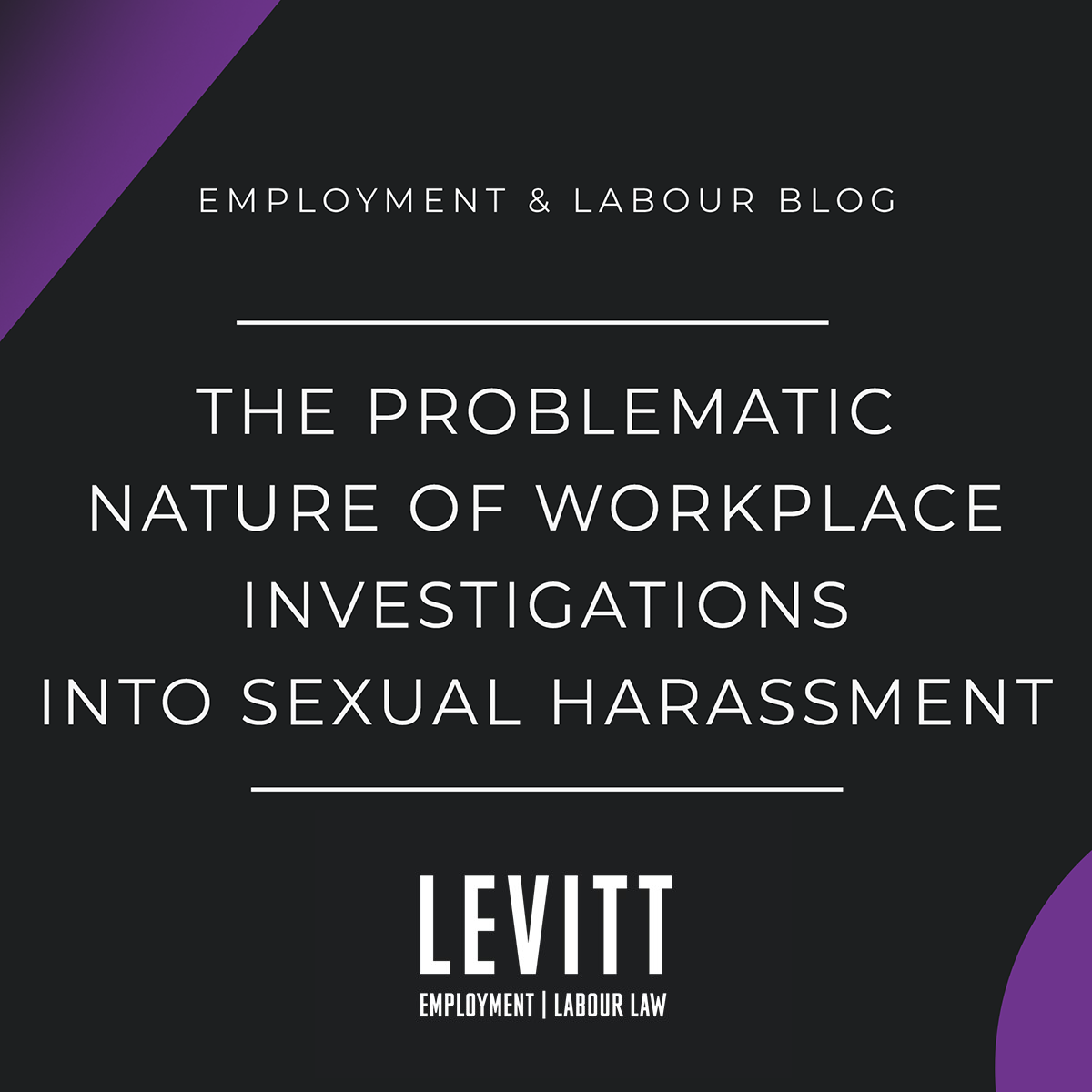Recently, numerous allegations of sexual assault, harassment, and “inappropriate behaviour” from multiple women against high-ranking military officials went before a Women’s Committee in the House of Commons. These women working within the Canadian Armed Forces narrated accounts of rape, sexual harassment, unwelcome touching and sexualized behaviour in the workplace. If the women complained, they received subpar investigations that resulted in reprisals and ostracism from their surrounding groups.
Many claim that not only is the government replacing genuine action with insincere apologies, but that they have been aware of these allegations since 2018. Unfortunately, disappointing statistics of inaction also exist in other Canadian workplaces.
On the employer’s side, there have been many cases of the contrary: employees extorting companies for severance or the termination of high power executives. The necessary investigations to determine who was harassed versus who was monetarily motivated must be meticulous and expansive. The following is an example of a recent sexual harassment complaint in the Canadian workplace that has not yet been proven in court:
A company’s senior executive complained that the company CEO told her that he liked how all of her tops squeezed her breasts together, giving her “classy” cleavage. She never came forward after the CEO reminded her that HR “reported” to him. In court, she, like countless other women, will be tested on her evidence and credibility.
Employers are required to conduct a basic investigation at minimum to ensure those coming forward are protected from retaliation. However, they are not necessarily protected from being ostracized, maligned or fired. Investigations can be biased, botched, or so flawed that they create more trauma for the affected employee.
An employer should work with an employment lawyer and draft a comprehensive anti-sexual harassment policy that sets out the company’s expectations and objectives to uphold a zero-tolerance workplace. This policy should set out how complaints will be dealt with and investigated and be distributed to every employee. Harassment training should be put into place for all employees, emphasizing those in leadership positions. Responses to harassment complaints should be prompt and taken seriously. An investigation should be held immediately, led by a well-trained HR team. The investigation, once completed, should culminate in an accessible report that explains the process undertaken by the employer.
If you feel like you have been a victim of sexual assault, please contact us today so we can help. Choose Levitt LLP when you cannot afford to lose.

